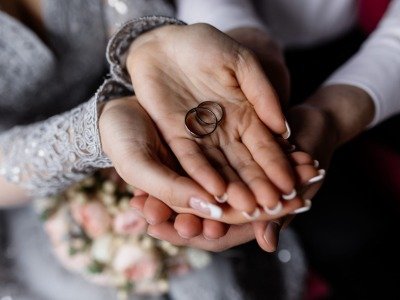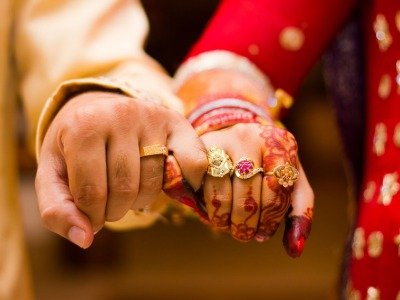Nikah Nama: A Legal Guide for Pakistani Couples
HAF MUHAMMAD ASFEE ANSARI
What is a Nikah Nama?
A Nikah Nama is a legal contract between a husband and wife that outlines the rights and obligations of each spouse in the marriage. It is a mandatory document under Pakistani law, and all Muslim marriages in Pakistan must be registered with the relevant Nikah Registrar.
Why is a Nikah Nama important?
A Nikah Nama is important for many reasons. First, it protects the husband and wife in a divorce or other marital dispute. Second, it helps to ensure that both spouses’ rights are respected and treated fairly and equitably. Third, it provides a framework for resolving any disagreements that may arise between the spouses during the marriage.
What to include in a Nikah Nama
should include the following essential elements:
- The names of the bride and groom
- The date and time of the Nikah
- The mahr (dowry)
- The rights and obligations of each spouse
- The signatures of the bride, groom, and two witnesses
What to avoid in a Nikah Nama
There are a few things that couples should avoid including in their Nikah Nama. First, they should avoid including any clauses that could be considered discriminatory or unfair to either spouse. Second, they should avoid including any clauses that are ambiguous or difficult to interpret. Third, they should avoid including illegal or unenforceable clauses under Pakistani law.
Sample Nikah Nama clauses
Here are some sample Nikah Nama clauses:
- Mahr: The husband shall pay to the wife a mahr of [amount] in cash or kind. The mahr shall be payable on demand by the wife.
- Maintenance: The husband shall provide the wife with reasonable maintenance, including food, clothing, and shelter. The maintenance shall be payable every month.
- Custody of children: In the event of a divorce, the custody of the children shall be determined under Islamic law.
- Dower: The wife shall be entitled to her dower, which is a share of the husband’s property, upon the dissolution of the marriage. The dower shall be payable in cash or kind.
Nikah Nama in Pakistan: FAQs
Q: Is a Nikah Nama required for a valid marriage in Pakistan?
A: A Nikah Nama is required for a valid marriage in Pakistan. All Muslim marriages in Pakistan must be registered with the relevant Nikah Registrar.
Q: What happens if I don’t have a Nikah Nama?
A: If you don’t have a Nikah Nama, your marriage will not be considered valid under Pakistani law. This means you will not be entitled to any legal protections that come with marriage, such as maintenance and dower.
Q: Can I change my Nikah Nama after it has been signed?
A: Yes, you can change your Nikah Nama after it has been signed, but you must do so with your spouse’s consent. You can also have your Nikah Nama amended by a court of law.
Q: What should I do if I have questions about my Nikah Nama?
A: If you have questions about your Nikah Nama, consult a lawyer. A lawyer can help you understand the terms of your Nikah Nama and advise you on your legal rights and options.


Myths and misconceptions about Nikah Nama
Nikah Nama is a legal contract between a husband and wife that outlines the rights and obligations of each spouse in the marriage. It is a mandatory document under Pakistani law, and all Muslim marriages in Pakistan must be registered with the relevant Nikah Registrar.
Despite its importance, there are many myths and misconceptions about Nikah Nama. Here are some of the most common ones:
Myth 1: A Nikah Nama is only necessary if a couple plans to divorce.
Fact: A Nikah Nama is important for all couples, regardless of their decision to divorce. A Nikah Nama provides legal protection for both the husband and wife in case of a divorce. Still, it also helps to ensure that both spouses’ rights are respected and treated fairly and equitably during the marriage.
Myth 2: A Nikah Nama is a document the husband’s family drafted.
Fact: A Nikah Nama is a contract between the husband and wife, and both parties should have equal input in their drafting. It is important to note that a Nikah Nama cannot contain any discriminatory or unfair clauses to either spouse.
Myth 3: A Nikah Nama cannot be changed after it has been signed.
Fact: A Nikah Nama can be changed after it has been signed, but both parties must agree to the changes. The changes must also be made in writing and signed by both spouses.
Myth 4: A Nikah Nama is only relevant to Muslim couples.
Fact: A Nikah Nama is a legal contract that couples of all religions can use. However, it is essential to note that a Nikah Nama must be drafted under Islamic law if it is to be used by a Muslim couple.
Myth 5: A Nikah Nama is a complex document that needs to be explained.
Fact: A Nikah Nama is a legal document, but it should be written in simple language that is easy for both spouses to understand. Couples can also consult a lawyer to get help drafting their Nikah Nama.
Nikah Nama in Pakistan: A Step-by-Step Guide
Nikah Nama, the marriage contract, is a fundamental document in Pakistan that legally recognizes and solemnizes a marriage. This document plays a pivotal role in Islamic traditions and is an essential requirement under Pakistani law. Understanding the process of obtaining a Nikah Nama is crucial for couples planning to tie the knot in Pakistan. This comprehensive guide will take you through the step-by-step process of acquiring a Nikah Nama, ensuring your marriage is legally valid and recognized.
Step 1: Prepare the Required Documentation
Gathering Essential Documents
Before the Nikah ceremony, the bride and groom must gather essential documents. These typically include valid national identity cards, copies of their family registration certificates (Form B), and passport-sized photographs. It’s crucial to ensure that all documents are up-to-date and valid.
The Significance of Valid Identification
Valid identification documents is a legal requirement to establish the identity and eligibility of both parties. These documents are necessary for the Nikah Nama to be considered legally binding.


Step 2: Selecting a Nikah Khawan (Officiator)
Who Can Officiate a Nikah?
In Pakistan, a Nikah must be performed by a Nikah Khawan, who is typically an Islamic religious leader or scholar. The Nikah Khawan conducts the ceremony, recites the necessary religious verses, and helps in the proper execution of the Nikah Nama.
The Role of a Nikah Khawan in the Marriage Process
A Nikah Khawan ensures that the ceremony adheres to Islamic customs and legal requirements. They guide the couple through the process and ensure that both parties understand all terms and conditions.
Step 3: Choosing the Date and Venue
Selecting a Suitable Date for the Nikah
Choosing a date for the Nikah is a significant decision. It’s essential to consider factors such as the couple’s convenience, the Nikah Khawan’s availability, and the date’s significance in the Islamic calendar.
Deciding on the Location for the Ceremony
The venue for the Nikah ceremony can be a mosque, a family home, or any other suitable and convenient location for the couple. Ensuring the venue is conducive to the ceremony’s solemnity is important.
Step 4: Meeting with the Nikah Khawan
Discussing the Terms and Conditions of the Nikah
Before the Nikah ceremony, the bride and groom meet with the Nikah Khawan to discuss the terms and conditions of the Nikah Nama. These may include mehr (dower), the responsibilities of the husband, and any specific conditions set by the bride or groom.
Understanding the Rights and Responsibilities of the Bride and Groom
The Nikah Khawan explains the bride and groom’s rights and responsibilities as outlined in the Nikah Nama. Both parties need to have a clear understanding of these obligations.
Step 5: The Nikah Ceremony
The Actual Nikah Process
The ceremony involves reciting specific religious verses and declarations in the presence of witnesses. Both the bride and groom and the Nikah Khawan sign the Nikah Nama to make the marriage official.
Signing the Nikah Nama in the Presence of Witnesses
The Nikah Nama is signed in front of two adult Muslim witnesses, who must also provide their identification details. These witnesses attest to the Nikah’s authenticity and both parties’ consent.
Step 6: Registration of the Nikah Nama
The Legal Significance of Registration
While the Nikah ceremony is a religious and social contract, the Nikah Nama must be registered with the relevant government authority for legal recognition. Registration is necessary to protect the legal rights and status of the couple.
Where and How to Register the Nikah Nama
Nikah Nama registration typically occurs at the local Union Council office. The couple must submit the signed Nikah Nama and the required documents to initiate the registration process.


Step 7: Obtaining the Official Nikah Nama Certificate
The Process of Receiving the Legally Recognized Nikah Nama
Once the Nikah Nama is registered, the couple can obtain the official Nikah Nama certificate. This legal document certifies the marriage and is essential for various legal and social purposes.
The Importance of Preserving This Document
The Nikah Nama certificate should be carefully preserved. It is often required for visa applications, inheritance claims, and other legal matters. Losing this document can pose significant challenges, so it’s essential to keep it in a safe place.
Why Choose Qanoon House for Your Nikah Nama Needs?
At Qanoon House, we understand that Nikah is a sacred bond between two people, and we are committed to helping couples in Karachi, Pakistan, create a Nikah Nama that is both legally valid and reflects their unique relationship.
Here are some reasons you should choose Qanoon House for your Nikah Nama needs:
- Experience and expertise: Our lawyers are highly experienced and knowledgeable in Nikah law. We have helped hundreds of couples create legally valid and comprehensive Nikah Namas.
- Personalized service: We take the time to understand your needs and requirements. We will work with you to draft a Nikah Nama that meets your needs and reflects your unique relationship.
- Transparency and fairness: We are committed to transparency and fairness in our dealings with our clients. We will explain the legal implications of each clause in your Nikah Nama and ensure that you understand your rights and obligations.
- Competitive rates and flexible payment options: We offer competitive rates for our Nikah Nama services. We also offer flexible payment options to make our services affordable for everyone.
In addition to the above, Qanoon House offers the following benefits:
- Convenience: We offer convenient appointment times and locations.
- Confidentiality: We maintain the strictest confidentiality with all of our clients.
- Multilingual support: We offer services in multiple languages, including English, Urdu, and Sindhi.
Contact Qanoon House Today
If you are looking for a reliable and experienced Nikah Nama service provider in Karachi, Pakistan, contact Qanoon House today. We will be happy to answer your questions and help you create a Nikah Nama that is both legally valid and reflects your unique relationship.
